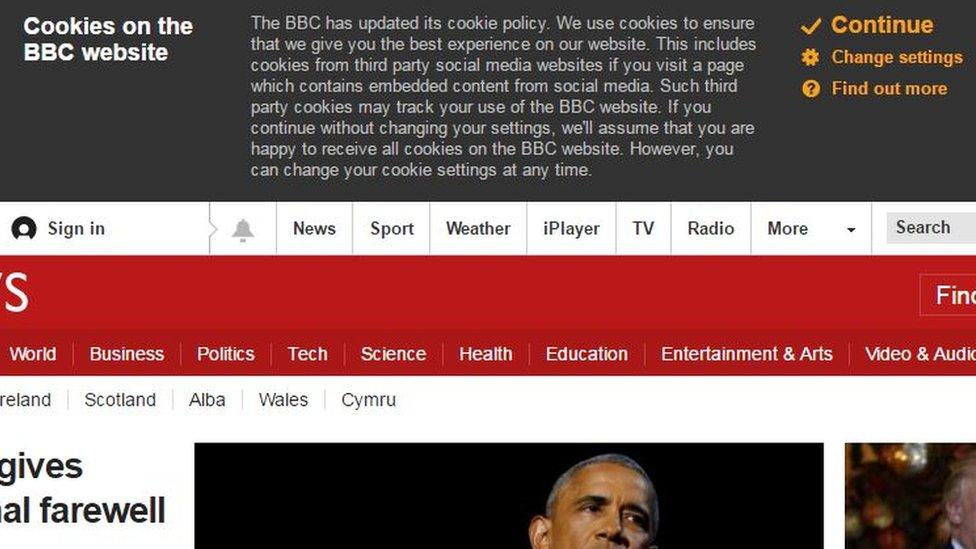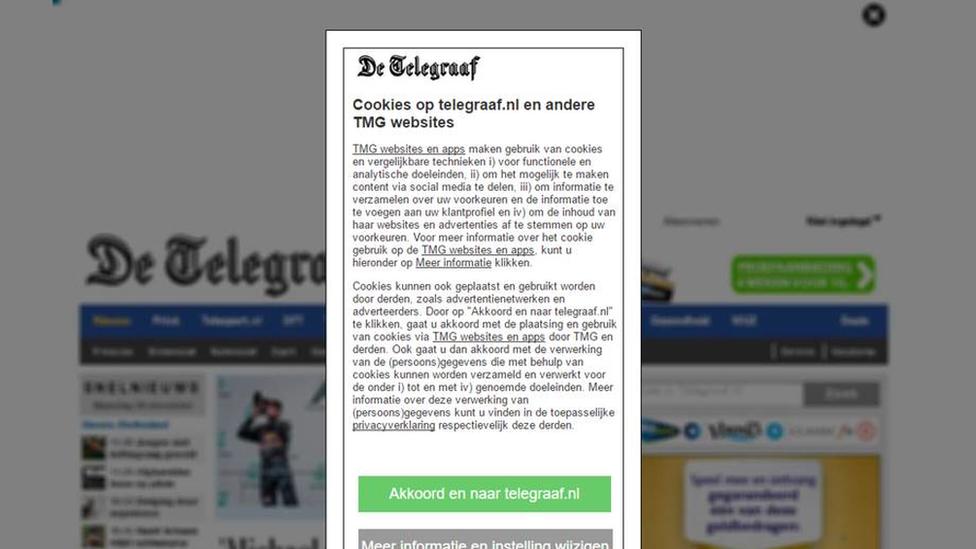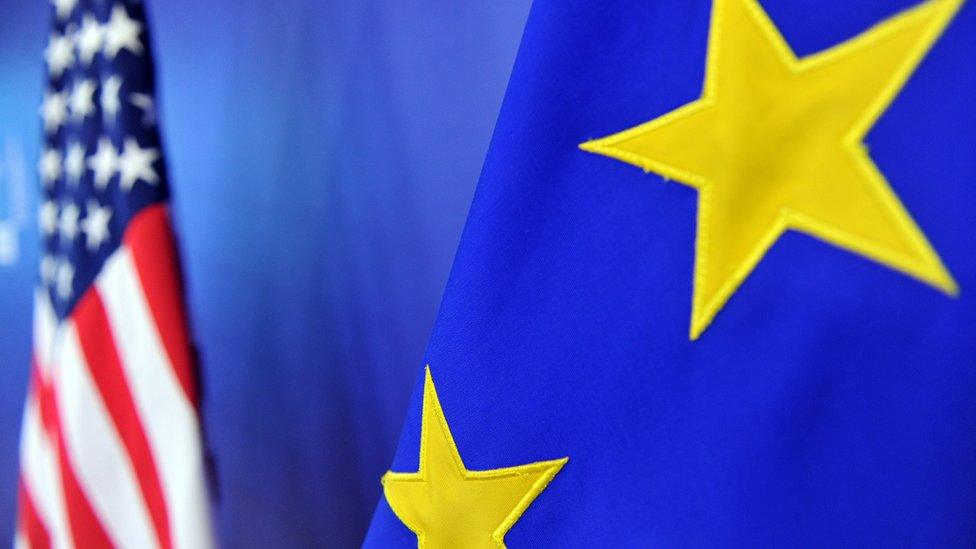Cookie banner frustration to be tackled by EU
- Published

Web users in Europe face pop-ups asking for cookie consent on most websites
Plans to cut down on the "annoying" cookie banners that web users face have been released by the European Union.
Instead of giving consent to cookies on every website they visit, users would be able to set general preferences.
The European Commission said, external the plans, which would also remove banners for non-intrusive cookies, would help to tackle an "overload" of such requests.
But experts warned the plans could harm advert-funded media, as well as platforms such as Facebook and Google.
Cookies are small files that download on to a user's device and enable tracking, sometimes to power advertising.
Since 2012, EU rules have required websites to tell users what cookies are being placed on their machine.
Typically, this meant a pop-up window seeking consent.
European Commission vice-president, Andrus Ansip, said it was now proposing simpler rules, "so that internet users do not have to click on a banner every time they visit a website".
"This way, people will be more in control of their settings," he said.

European Commissioner Andrus Ansip hopes users will be able to make an "informed choice" about cookies
Under the plans, websites could read the cookie preferences set in users' browsers.
Also, banners would be scrapped for cookies that do not invade users' privacy, such as those remembering shopping cart history or counting website hits.
Last year, many internet companies called for the EU to scrap the so-called "cookie law", introduced in 2012.
However, the latest proposals could end up damaging online services and frustrate web users, according to a senior executive at a trade body that represents many of the world's biggest internet firms.
"The banners are certainly annoying. The question is whether they come up with something that's better or worse," said James Waterworth, vice-president of the Computer and Communications Industry Association.
He warned the proposals could harm a range of companies, from Facebook through to newspapers, if many users opted against allowing all but the least intrusive cookies.
"If this is done wrong and it's much harder to obtain permission, then it could have a serious impact on ad-funded services," he told the BBC.

Cookie banners are more intrusive in some EU countries
Under the proposals, users could set a preference in their browser for the level of cookies to which they consent.
But they might also need to do this in every app and on every device they log in to, advertising companies have warned.
"People who thought cookie banners were annoying, will be disappointed to hear that things won't get better," said Townsend Feehan, chief executive of Interactive Advertising Bureau Europe.
The commission's proposals on privacy rules for electronic communications, external cover a range of areas, including:
users would set their consent on cookies through "software applications enabling accessing to the internet", a move experts said could apply to browsers but also mobile apps
tougher rules on how messaging services, such as WhatsApp, Skype, Gmail and Viber, track users
email services, such as Gmail and Hotmail, would not be able to scan emails to serve targeted ads without users' explicit permission
The European Commission hopes to introduce the changes by May 2018, although experts warned that would be a tight timeline.
It comes less than a year after the EU introduced the Privacy Shield, which also set rules for tech companies on data protection and privacy.
- Published22 November 2016

- Published8 July 2016

- Published2 December 2015

- Published25 May 2012
